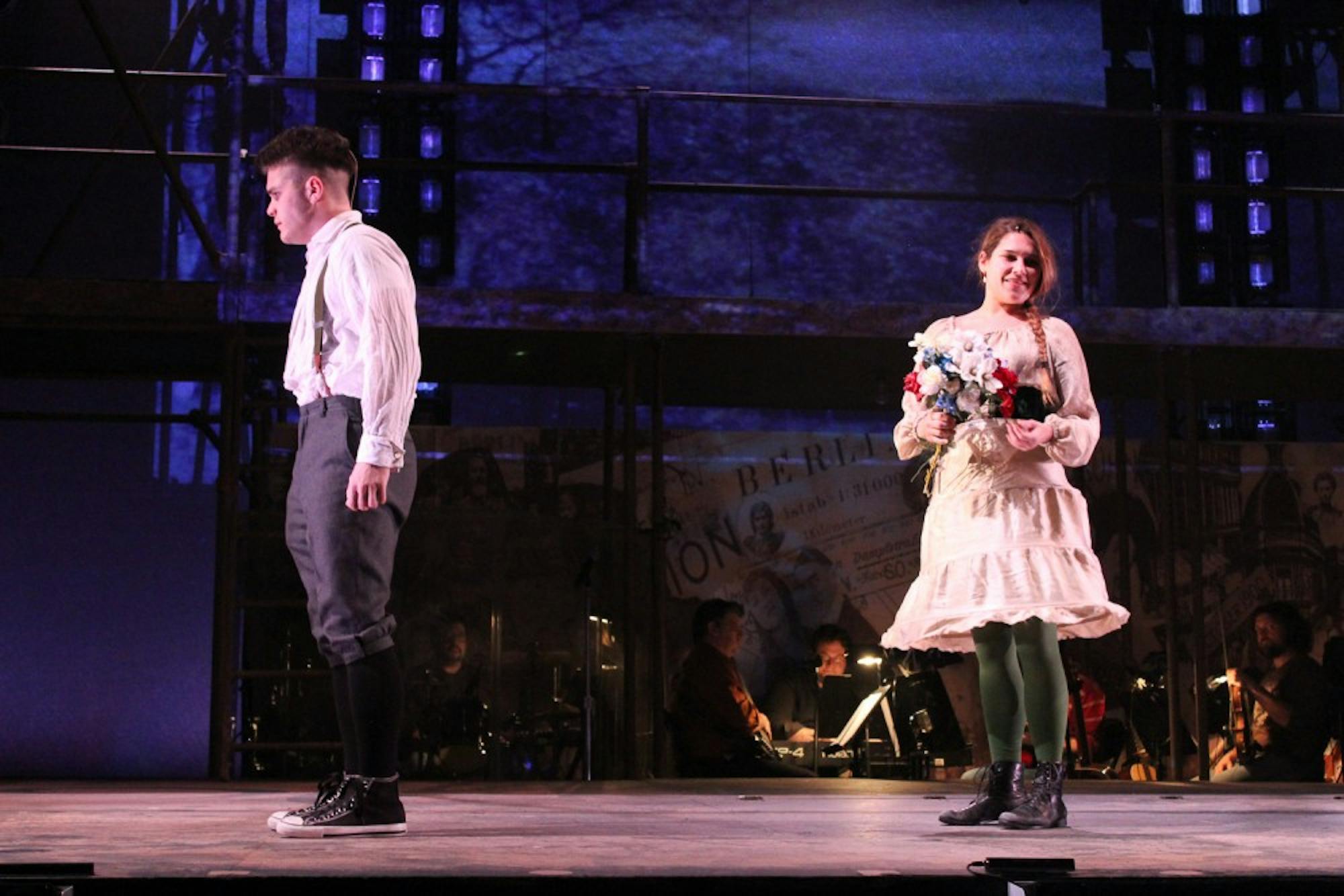When “Spring Awakening” was first written in 1891 by Frank Wedekind, the play was banned throughout Germany for its explicit content. After seeing the musical version that landed on Broadway over a century later, theater professor Jamie Horton was so impressed by its bold story that he pledged to eventually direct the show. His wish became a reality this year, as Horton and his student cast prepare to perform the musical this Friday.
The biggest challenge facing the cast and crew ahead of the show’s Feb. 21 premiere, Horton said, has been addressing the sensitive topics that the musical explores, like adolescence, sexuality and teenage rebellion.
“Spring Awakening” tells the story of a group of teenagers growing up and opening their eyes to the adult world, but the show is more complex than a classic coming-of-age story.
“The awakening of spring means the awakening of [the characters’] knowledge,” Horton said. “They are awakening physically to their own sexuality.”
Without parental resources or proper education, the characters are left to their own devices during their awakenings. The situation leads the teenagers to confront issues ranging from sexual abuse to teenage suicide.
To portray these issues honestly and respectfully, Horton has led the cast in several group discussions.
“We spoke about it frankly as a cast,” he said. “It was crucial to me that it was discussed out in the open and to be clear about the story that we are telling.”
One particular scene involving the first sexual encounter between two teenagers, Melchior and Wendla, has proven to be logistically and emotionally difficult for the cast and crew.
“From a technical standpoint, that’s a tricky scene to rehearse, but the entire cast has been very supportive,” said Max Gottschall ’15, who plays Melchior.
Haley Reicher ’17, who plays Wendla, said that she appreciates how Horton brought “beauty and tenderness” to the scene, which was initially rehearsed in a closed setting with just the director and two actors present.
Gottschall said that the scene raises “palpable emotions” from the audience.
“This is absolutely an act of love, but it doesn’t necessarily adhere to 21st century terms and definitions,” he said.
Horton said that the musical should be viewed through the lens of 19th century German society and not judged according to contemporary standards. In particular, he said that the scene could be interpreted as sexual assault when judged by contemporary standards, but Wedekind did not intend it to be that way when first written.
Yet some of the issues raised in “Spring Awakening” remain relevant today, Reicher said.
“I think that the ambiguity of the sex scene is related to some cultural issues on this campus, and I can’t wait to see how the community will react to this play,” Reicher said.
Reicher said that the scene could provoke a response from Dartmouth’s audience.
Throughout the musical, the characters resist the conservative society they belong to, forcing the cast to question characters’ motivations and actions, she said. Although Reicher originally thought that Wendla was naive, she has realized that the repressive society has made Wendla who she is, not naivety.
Emma Orme ’15, who plays Wendla’s friend Anna, said that the cast is trying to create a separate world within the show. The production utilizes characters in the background to animate the environment when they are not part of a scene’s plot.
“One personal challenge has been to figure out why I am in certain scenes and certain songs,” Orme said. “[I’m] making sure to develop honest relationship with certain moments of the show so that it makes sense for my character to be there the whole time.”
On the other hand, the characters’ rebellious behavior has provided actors with an emotional outlet.
“Melchior is really fun to play because he doesn’t take any crap,” Gottschall said. “He’s a questioner. He doesn’t take what the society is feeding him at face value, and he has to find out for himself. One person is not enough to change how the society educates the children, but he tries. He is the revolutionary.”
“Spring Awakening” engages the audience with folk-infused alternative rock music, which is juxtaposed with 19th century language, Horton said.
While most musicals use songs to substitute spoken lines, the songs in “Spring Awakening” also serve as outbursts against an oppressive society, Gottschall said.
“A general form for musical is ‘Boy meets girl, boy can’t have girl, boy gets girl back, and we all dance and sing about it,’” he said. “This one’s a lot different. That’s been challenging to get at. But it’s been very rewarding, and we’re all putting together a very powerful piece of musical.”
“Spring Awakening” premieres on Friday at 8 p.m. in Moore Theater. After the production, the director and cast will host an informal discussion.




